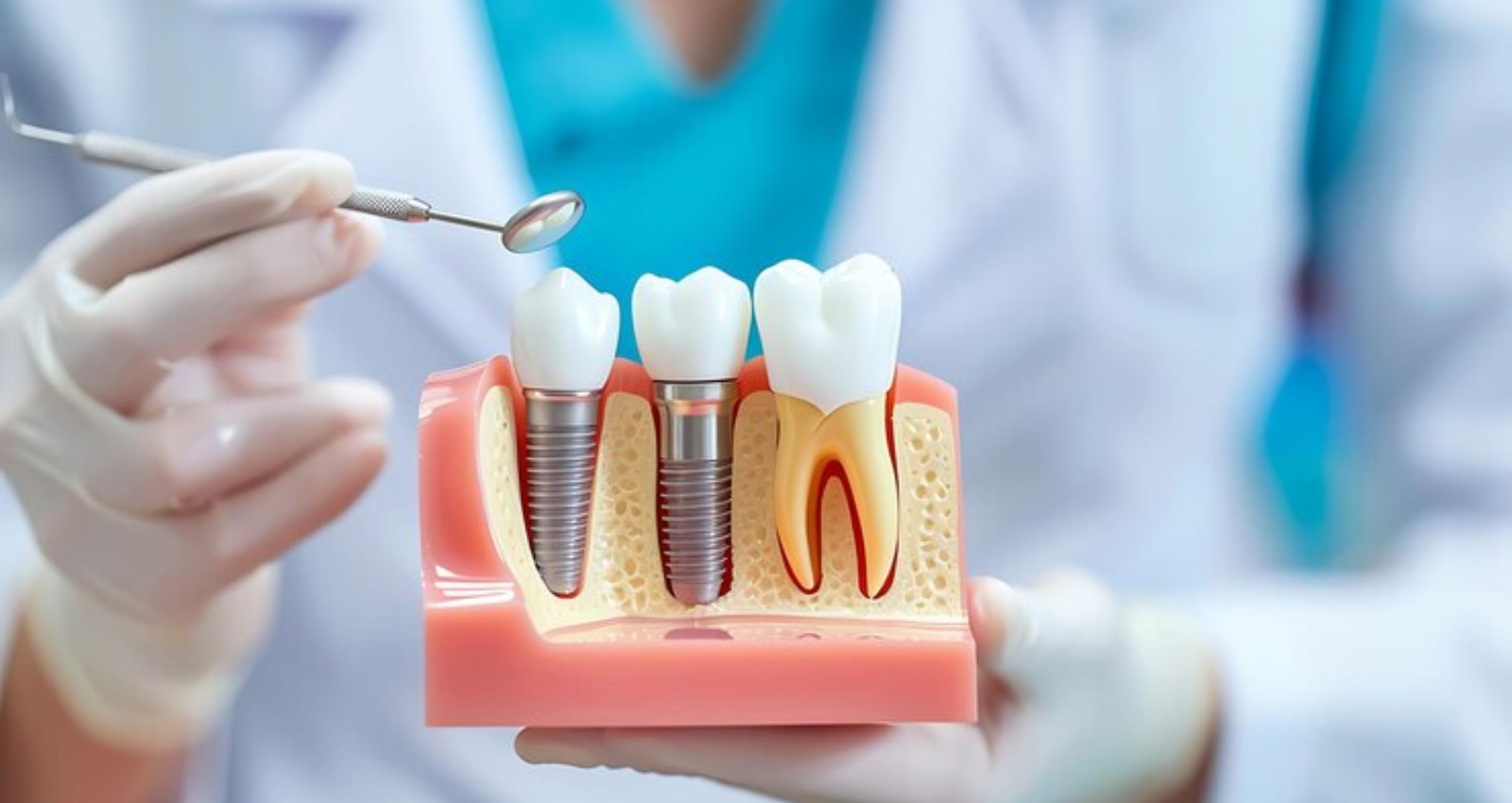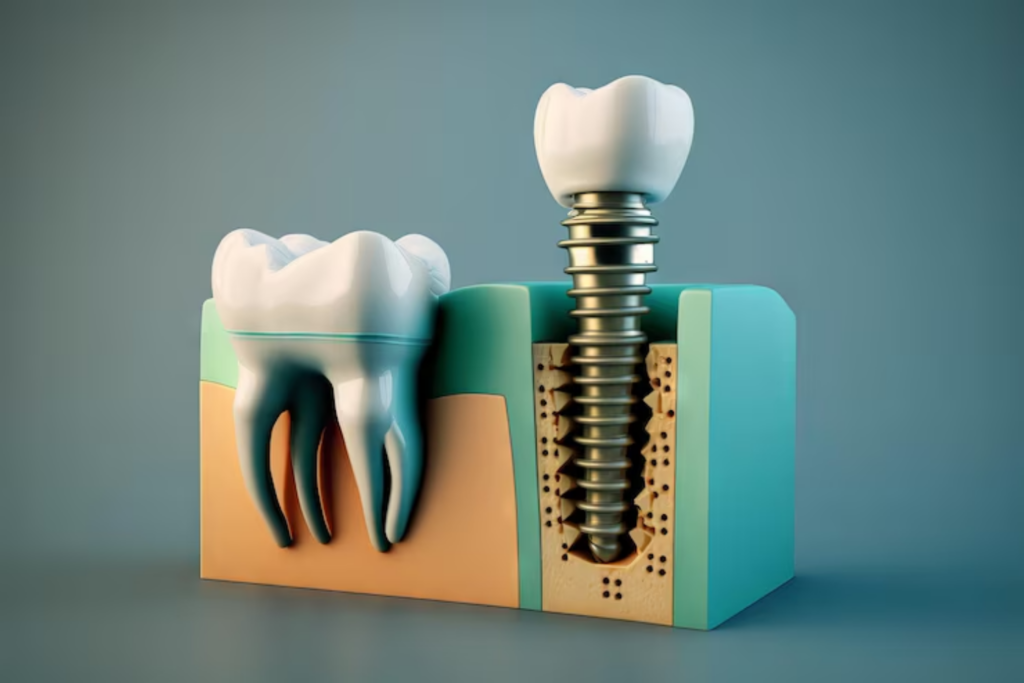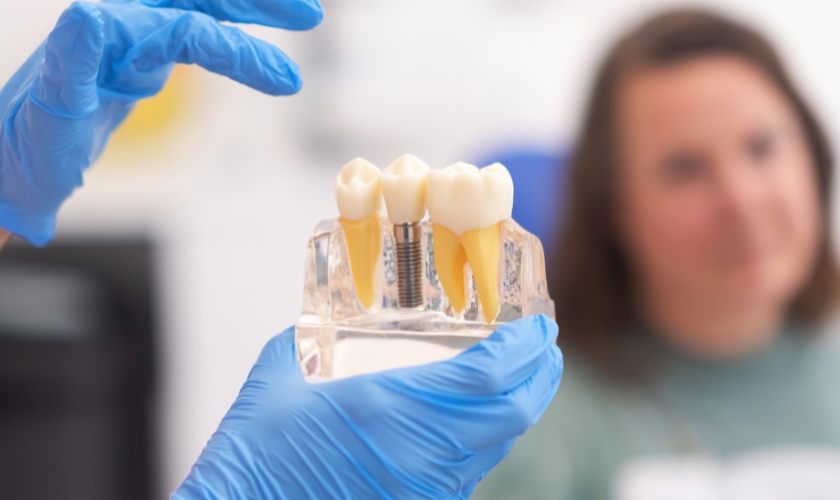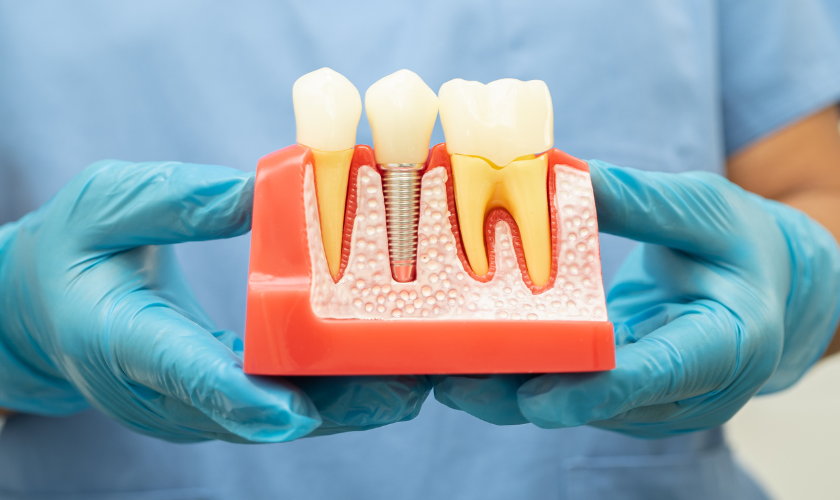
Dental implants have revolutionized restorative dentistry, offering a permanent and reliable solution for missing teeth. If you’re considering or have just undergone a dental implant procedure, one of the most pressing questions on your mind might be: “How many days should I rest after getting a dental implant?” Proper post-operative care, including sufficient rest, is crucial for ensuring the success of your implant and your overall recovery.
This blog post will delve into the importance of rest after a dental implant, the typical recovery timeline, and tips for ensuring a smooth recovery process.
Understanding the Dental Implant Procedure
Before discussing the recovery period, it’s essential to understand what the dental implant procedure entails. A dental implant is a titanium post surgically placed into your jawbone, serving as an artificial tooth root. This post eventually fuses with the bone through a process called osseointegration, providing a stable base for a crown or bridge.
The procedure is usually performed in stages:
- Initial Consultation: Your dentist will evaluate your oral health, take X-rays, and plan the implant placement.
- Implant Placement: The titanium post is surgically inserted into the jawbone. Depending on the complexity, this can take anywhere from one to a few hours.
- Healing and Osseointegration: This crucial phase, lasting several months, allows the implant to fuse with the bone.
- Abutment Placement: Once the implant has integrated with the bone, an abutment is placed on top of the implant to hold the final crown.
- Crown Placement: Finally, a custom-made crown is attached to the abutment, completing the restoration.

Why Rest is Crucial After a Dental Implant
Rest is a vital component of the recovery process following a dental implant procedure. After the surgery, your body needs time to heal and adapt to the implant. Adequate rest helps minimize complications, such as swelling, bleeding, and infection while promoting faster recovery and the successful integration of the implant with your jawbone.
Here are a few reasons why rest is essential:
- Promotes Healing: Resting allows your body to focus its energy on healing the surgical site, reducing the risk of complications and ensuring the implant integrates well with the bone.
- Reduces Swelling: Resting with your head elevated can help reduce swelling, a common side effect of dental implant surgery. Minimizing physical activity also prevents unnecessary strain on the implant site.
- Prevents Bleeding: Excessive movement or physical activity can increase blood pressure, leading to bleeding at the surgical site. Resting helps control bleeding and promotes clot formation.
- Minimizes Pain and Discomfort: Post-operative discomfort is expected after dental implant surgery. Resting, along with following your dentist’s pain management instructions, can help alleviate discomfort and speed up the healing process.
How Long Should You Rest After Getting a Dental Implant?
The duration of rest needed after a dental implant procedure can vary depending on several factors, including the complexity of the surgery, the number of implants placed, your overall health, and how well your body heals.
However, here’s a general guideline for how long you should rest after getting a dental implant:
First 24-48 Hours: Critical Rest Period
The first 24-48 hours post-surgery are crucial for the initial healing process. During this period, it’s essential to rest as much as possible. Avoid any physical exertion, and keep your head elevated to reduce swelling. This is also the time when you’ll need to follow your dentist’s instructions for managing pain, swelling, and bleeding.
You should plan to take at least one to two days off work or school, particularly if your job requires physical activity or prolonged concentration. Even if your work is sedentary, resting at home can help you avoid unnecessary stress and allow your body to focus on healing.
Days 3-7: Gradual Return to Normal Activities
After the initial 48-hour period, you can begin to gradually resume normal activities, but it’s still essential to take it easy. Light activities such as walking are generally safe, but avoid any strenuous exercise, heavy lifting, or activities that could strain your mouth or cause a spike in blood pressure.
During this time, you may still experience some swelling, bruising, and mild discomfort, but these symptoms should start to subside. Continue following your dentist’s post-operative care instructions, including any prescribed medication, and avoid smoking, as it can impede healing.
Week 2: Resuming Routine Activities
By the second week, most patients can resume their regular daily routines, including returning to work, school, or other activities. However, it’s important to continue avoiding any activities that could impact the implant site, such as contact sports or heavy lifting.
At this stage, your dentist may schedule a follow-up appointment to check the healing progress. It’s crucial to attend this appointment to ensure that your implant is integrating well with the bone.
Months 1-3: Full Recovery and Osseointegration
The osseointegration process, where the implant fuses with the jawbone, typically takes several months. While you won’t need to rest as much during this time, it’s still important to take care of your implant and avoid activities that could jeopardize its stability.
Your dentist may recommend a soft food diet during the initial weeks to prevent putting too much pressure on the implant. As the implant continues to heal and integrate, you can gradually reintroduce more solid foods into your diet.
Tips for a Smooth Recovery After Dental Implant Surgery
To ensure a smooth recovery and the best possible outcome for your dental implant, follow these tips:
- Follow Your Dentist’s Instructions: Your dentist will provide specific post-operative care instructions tailored to your procedure. These may include guidelines on medication, diet, oral hygiene, and activities to avoid.
- Manage Swelling and Pain: Use ice packs on your face to reduce swelling in the first 24-48 hours. Take prescribed or over-the-counter pain medication as directed to manage discomfort.
- Stick to a Soft Food Diet: For the first few days, stick to soft, non-chewy foods that don’t require much chewing. Gradually reintroduce solid foods as your implant heals.
- Maintain Good Oral Hygiene: Keep your mouth clean to prevent infection, but be gentle around the implant site. Your dentist may recommend using a special mouthwash or saltwater rinse.
- Avoid Smoking and Alcohol: Both smoking and alcohol can interfere with the healing process and increase the risk of complications. Avoid them for at least a few weeks after surgery.
- Get Plenty of Rest: Don’t rush your recovery. Allow your body the time it needs to heal properly and avoid returning to strenuous activities too soon.
- Attend Follow-Up Appointments: Regular follow-up appointments with your dentist are crucial for monitoring the healing process and ensuring the success of your implant.
Resting after getting a dental implant is crucial for ensuring a smooth recovery and the long-term success of your implant. While the exact number of days you should rest can vary based on individual factors, the first 24-48 hours are critical for initial healing. Gradually resuming normal activities over the following weeks while avoiding strenuous exertion will help your body recover and allow the implant to integrate with the bone.
By following your dentist’s post-operative care instructions, managing pain and swelling, and allowing ample time for rest, you’ll be well on your way to enjoying the benefits of your new dental implant for years to come.
If you’re considering a dental implant or have recently undergone the procedure, consult with your dentist for personalized advice on your recovery timeline and any specific care instructions. Proper rest and care are key to a successful outcome, so take the time your body needs to heal.


